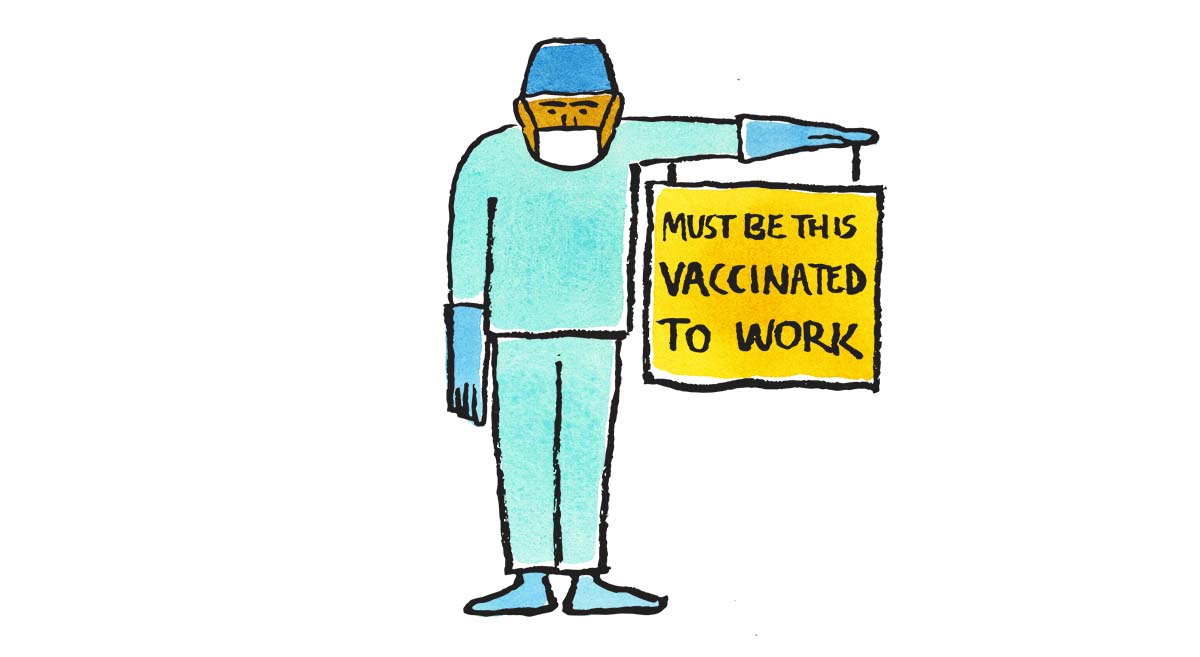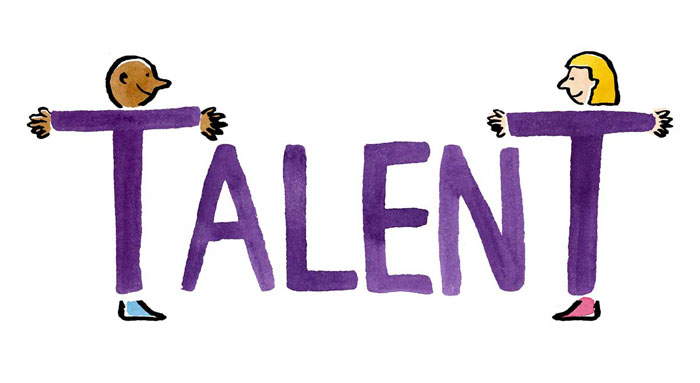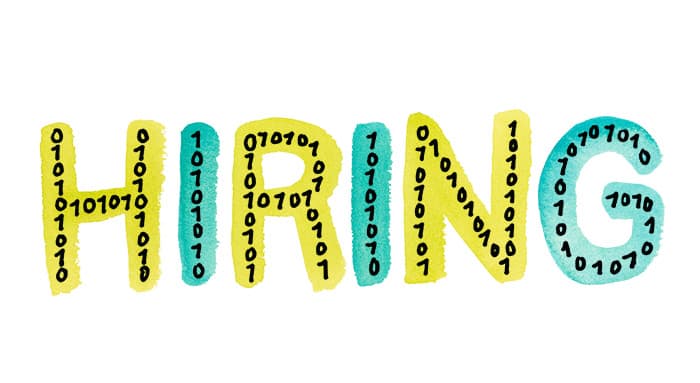
Now that COVID-19 vaccines are available in much of the world, policymakers are proposing vaccination (vaxx) mandates as the next step in stopping the virus from spreading.
Mandate proponents are asking businesses, schools, and government agencies to help end the pandemic by requiring employees to get vaccinated, or be fired. But many workers are pushing back, refusing to get the vaccine even if it means losing their jobs.
Regardless of whether the execution of the mandate is carried out, the question for employers remains the same:
With workers willing to quit their jobs rather than obey a vaccination order, what does this mean for the future of hiring?
Under the US Constitution and federal law, at-risk employers can fire for cause or no cause at all and have the right to require vaccinations. However, exercising that right can trigger a discrimination lawsuit if a mandate conflicts with an employee’s medical condition, religious beliefs or healthcare privacy rights.
Of course, it doesn’t help that this is all taking place against the backdrop of one the largest labor crises seen in recent history. The pandemic is causing workers to rethink their careers and today, they’re quitting in record numbers. The “Great Resignation” has already seen a high of 4.4 million people voluntarily leave their jobs in September alone. Add the pushback against vaxx mandates to the mix and businesses could possibly face the most critical shortage of candidates in generations.
Key takeaways
- The vaxx mandate will require employers to have clear vaccination policies in place
- The mandate may make hiring harder amid the Great Resignation
- A clear policy backed by employee buy-in will be crucial for fighting retention
- Companies with flexible working, solid benefits, and strong recruitment strategy will come out on top
Biden issues five-point mandate
For most businesses, hiring is tough as it is. But not all must comply with the government-imposed vaxx mandate. President Biden explains who must comply and what the requirements are in this five-point plan:
- All employers with 100 or more workers must make sure each one is vaccinated or tested weekly.
- All federal employees and government contractors must be vaccinated.
- Healthcare workers at Medicare and Medicaid participating hospitals and other healthcare settings must be vaccinated.
- Big entertainment companies must require patrons to show proof of being vaccinated or tested for the virus upon entering an arena.
- Employers must give workers paid time off to get vaccinated.
Piggybacking on the White House’s paid-time-off requirement, an Occupational Safety and Health Administration (OSHA) rule requires employers with more than 100 workers to grant them enough paid time to get the vaccine and recover from any side effects.
The White House planned to enforce the mandate by January, but the Fifth Circuit Court of Appeals temporarily halted the measure pending a review. This caused OSHA to suspend the enforcement of the mandate until the court challenge is resolved. The move could be a temporary reprieve for employers who are confronting the labor crisis.
The pandemic is fueling the hiring struggle
With employers having problems filling vacancies, will vaxx mandates shrink the pool of qualified workers even more?
Study results are hinting at that possibility.
Nearly 70% of companies in the 2021 ManpowerGroup Talent Shortage survey said they’re struggling to find candidates. Survey results break down the factors driving the shortage, list the most in-demand skills and offer insights into why companies aren’t attracting workers. According to the data:
- COVID-19 is driving much of the labor shortage, and workplace-based companies without flexible work schedules are having the most trouble hiring.
- The most difficult jobs to fill are in operations, followed by manufacturing/production, sales/marketing, IT/data, administration/office support, front office/customer service and HR.
- The demand for soft skills like accountability, adaptability, initiative-taking, leadership and problem-solving have increased.
- Companies with 250 or more employees are having a harder time with recruiting and retention than companies with 10 or fewer employees.
Zety, an online resume-builder, polled 800 US workers to find out what’s causing the massive job exit. The survey revealed that:
- Young people are leading the “Great Resignation,” with 56% of those aged 38 and under quitting their jobs in 2021. Among older workers, only 37% aged 55 and older quit their job this year.
- About 63% of workers with one to five years of professional experience left their jobs, compared to only 23% of workers with 20+ years of experience.
- The top reasons for the exit were low salary, limited career opportunities and feeling undervalued by managers.
- Meanwhile, more than 68% of respondents cited low pay, limited career opportunities and poor employee benefits as major factors in their decision to quit.
- Flexible work schedules, higher salaries, generous employee benefits and more meaningful work were the top factors that attracted respondents to new job opportunities.
Although neither survey mentioned vaxx mandates, they did describe what workers want from their jobs.
If, like so many others, your company is suffering the consequences of the talent shortage, take note and do whatever you can to adjust your recruiting efforts to attract more candidates. Of course, depending on the pending court decision, hiring could still come down to whether job seekers are willing to get vaccinated for a job they want to keep.
Small and growing business are feeling the pain
Many small business advocates challenge the finding that the labor shortage is hitting large companies the hardest. Based on data such as that found by the National Federation of Independent Business (NFIB), small and medium-sized businesses (SMBs) are arguably feeling most of the sting given that by the end of 2020, nearly a third of them already had jobs they couldn’t fill.
As the labor crisis expanded into 2021, more than half of SMBs — a record 51% — had openings with no candidates to fill them. Now they face vaxx mandates that could make the labor shortage worse and threaten or even shut down their operations.
Employment experts like Debra Wheatman, president at Careers Done Write, agree that vaxx mandates can create huge risks for SMBs, especially those that barely meet the mandate’s 100-employee requirement.
“It is a confusing time for people, as the [mandate] might require [them] to look for new positions if they don’t comply with OSHA’s new rule,” Wheatman noted. “Those people that are not vaccinated might decide to leave once the mandate takes effect, leaving small businesses devastated and unable to maintain their operations.”
Wheatman added that employers may be grappling with whether they should hire more workers if it requires complying with the mandate. When the rule is finally issued, she said, it could force businesses to fire workers or face the consequences of not complying.
James Rice, the head of SEO at Picked, a hiring assessments solutions firm, thinks the vaccine mandate is likely to make the hiring process more difficult for SMBs. “Business could see smaller talent pools, which means they could miss out on hiring the most suitable candidates,” he said.
Employers will need vaccination policies
Whether businesses decide to follow the Biden mandate or comply by drafting their own policies, they’ll need a system for tracking vaccinations for current and new employees. But if or when the court lifts the stay on the mandate, will employers have the right systems in place?
Rice said, “Having access to vaccination records will become an important part of the hiring process, so systems will have to be in place during the screening process to verify that a candidate has been vaccinated and it is up to date.”
The Society for Human Resource Management recommends a vaccination policy that includes:
- A purpose, which explains why the policy is necessary.
- A scope stating who and what the policy covers and the consequences for not complying.
- Procedures for carrying out the policy.
- Reasonable accommodation measures, which outlines exemptions for medical conditions, religious beliefs or healthcare privacy issues and how to request them.
Mandates could lead to productivity losses
Vaxx mandates could lead to more problems besides labor shortages, warned Rice.
He said vaxx mandates could make staff shortages more prevalent, as business owners are forced to terminate employees and filling those positions becomes harder. “An exodus of talent could result in a loss of knowledge and skills, potentially lowering productivity and incurring higher turnover costs.”
Getting workers’ buy-in is key
Mandates take away people’s preference for choice. Having to obey a rule or avoid violating a policy often invites resistance. But companies can minimize the autocracy by working to get employees onboard with accepting the mandate.
Dawn Cone, founder and CEO of DSC Consulting Solutions, LCC, said that although vaxx mandates may seem disputable, like any company policy, it’s on leadership to resolve any contention.
“The impact on any business and the future of hiring often depends on the leader and how he/she frames these mandates and discussions — the more potentially divisive the issue, the more critical the messaging is towards encouraging buy-in or cooperation,” said Cone.
“Ultimately, survival and growth of the business will depend on a leader's ability to sell the bigger vision and purpose of the company. That means being clear about how policies and mandates should be viewed as a means to accomplish that vision and purpose. People want to work for businesses that they can get behind and who share important values.”
Cone added that attracting and retaining good talent hinges on being a focused and purpose-driven business.
If you approach it right, the mandate could give your company a leg up
Businesses may not see vaxx mandates as a hiring tool right now, but they shouldn’t rule out the possibility, said Michael Alexis, CEO and founder of teambuilding.com.
“Every organization that is recruiting has a number of tools in its ‘attract candidates’ tool chest. For example, you may put more emphasis on competitive salaries, generous benefits packages, company retreats to exotic locations, and more,” said Alexis.
With the right recruitment strategy and an applicant tracking system that can help deliver a standout candidate experience, employers may be able to use this development to their advantage.
Experts like Alexis also see vaxx mandates as a useful business tool that workers may eventually accept.
“I believe in the near future we will see vaccine mandates as another prominent tool. As many regions approach the 60 - 80% vaccinated rate, and also continue to navigate toward returning to the office, employees and candidates that are vaccinated will seek out workplaces with mandates,” said Alexis. “There is strong comfort in knowing that the people you are around every day have been vetted for the vaccine, and that comfort translates to a large quality of life boost at work.”





